.png)

Belgium 10-3-26 All Members Physical english
From modular business design to AI-driven pipelines, architectures, and operationsA composable enterprise is built on modular processes, API-driven ecosystems, low-code platforms, and cloud-native services. It promises speed and adaptability by allowing organisations to reconfigure their capabilities as conditions change. However, modular design alone does not guarantee resilience; the way these systems are engineered and operated is just as important.This is where AI is beginning to make a difference. Beyond generating snippets of code, AI is already influencing how entire systems are developed and run: accelerating CI/CD pipelines, improving test coverage, optimising Infrastructure-as-Code, sharpening observability, and even shaping architectural decisions. These changes directly affect how quickly new business components can be deployed, connected, and retired.In this session, we will examine how CIOs can bring these two movements together:Composable design is the framework for flexibility and modularity.AI-augmented engineering is the force that delivers the speed, quality, and intelligence needed to sustain it.The pitfalls of treating them in isolation: composability that collapses under slow engineering cycles, or AI that only adds complexity without a modular structure.The discussion goes beyond concepts to practical implications: how to architect organisations that can be recomposed at speed, without losing control or reliability. The outcome is an enterprise that is not only modular in design but also engineered to adapt continuously under real-world conditions.
Read More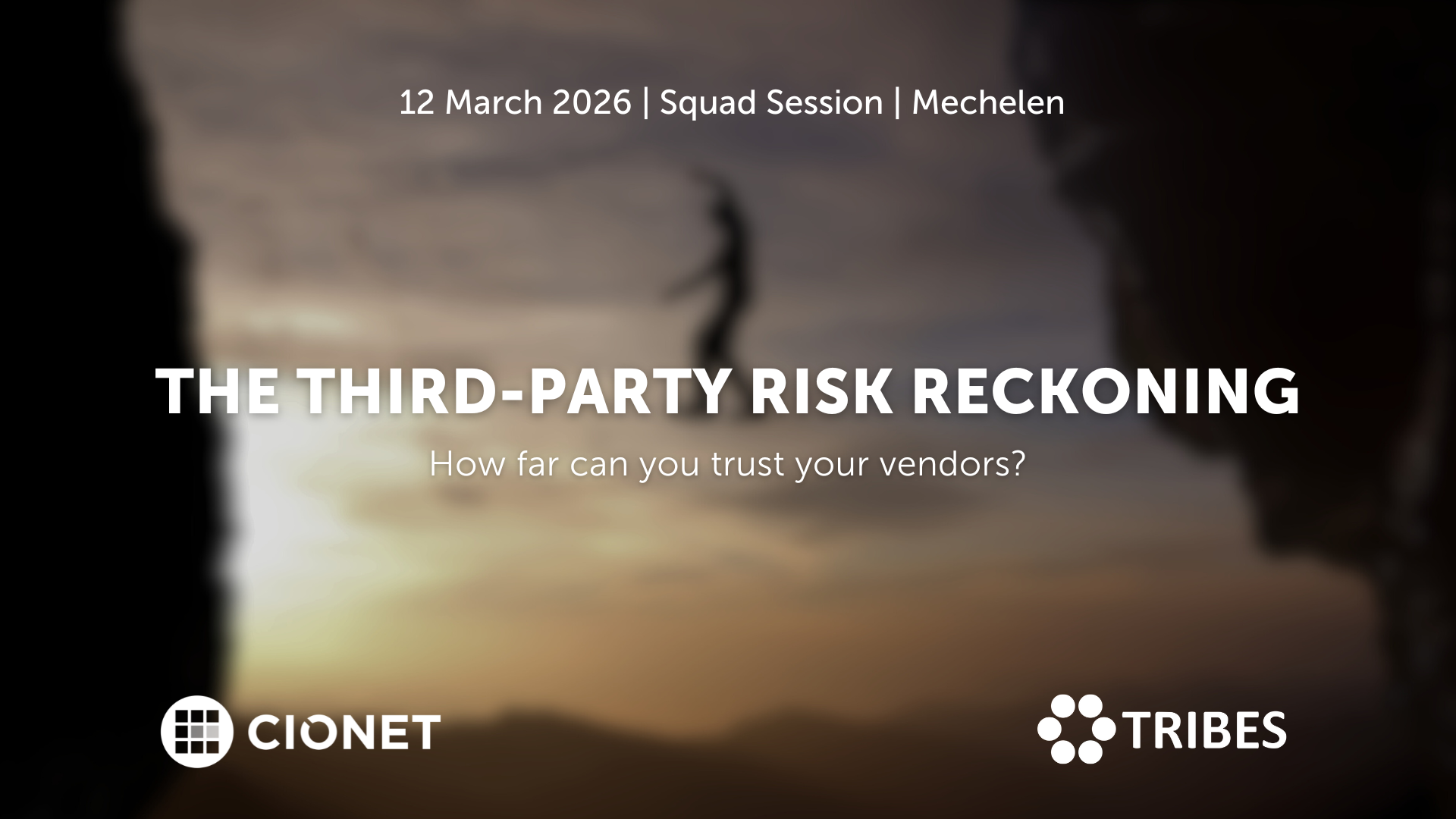
Belgium 12-3-26 Physical english
Tomato! Tomato! Tomato! Get your tomato now! Every vendor sells security. And every company depends on vendors, partners, and suppliers. The more digital the business becomes, the longer that list grows, and so does the attack surface. One weak link, and there is always one, or one missed update, and trust collapses faster than any firewall can react. What used to be a procurement checklist has become a full-time discipline. Questionnaires, audits, and endless documentation prove that everyone’s “compliant,” yet incidents keep happening. So it’s clear: the issue isn’t lack of policy, or maybe a bit, but mostly lack of visibility. Beyond a certain point, even the most secure organisation is only as safe as its least prepared partner (or an employee who hadn’t had their morning coffee). So how far can you trust your vendors? How do you check what you can’t control? And when does assurance become theatre instead of protection? Does it come at a different cost? Let’s exchange what works and what fails in third-party risk management: live monitoring, shared responsibility models, contractual levers, and the reality of building trust in a chain you don’t own. A closed conversation for those redefining what partnership means when risk is shared but accountability isn’t.
Read More.jpg)
Belgium 19-3-26 Country Members Physical french
Moins de Partenaires : La consolidation vaut-elle le risque ? Le problème est la prolifération des fournisseurs : trop d'outils causant de la complexité, une taxe d'intégration paralysante et de la redondance. La Taxe d'Intégration est le coût caché (en temps, en échecs et en ressources) d'essayer de faire fonctionner ensemble des systèmes disparates. Cet échange se concentre sur des stratégies éprouvées pour simplifier de manière agressive le parc technologique, consolider les fournisseurs et élever certains fournisseurs clés au rang de partenaires stratégiques.
Read More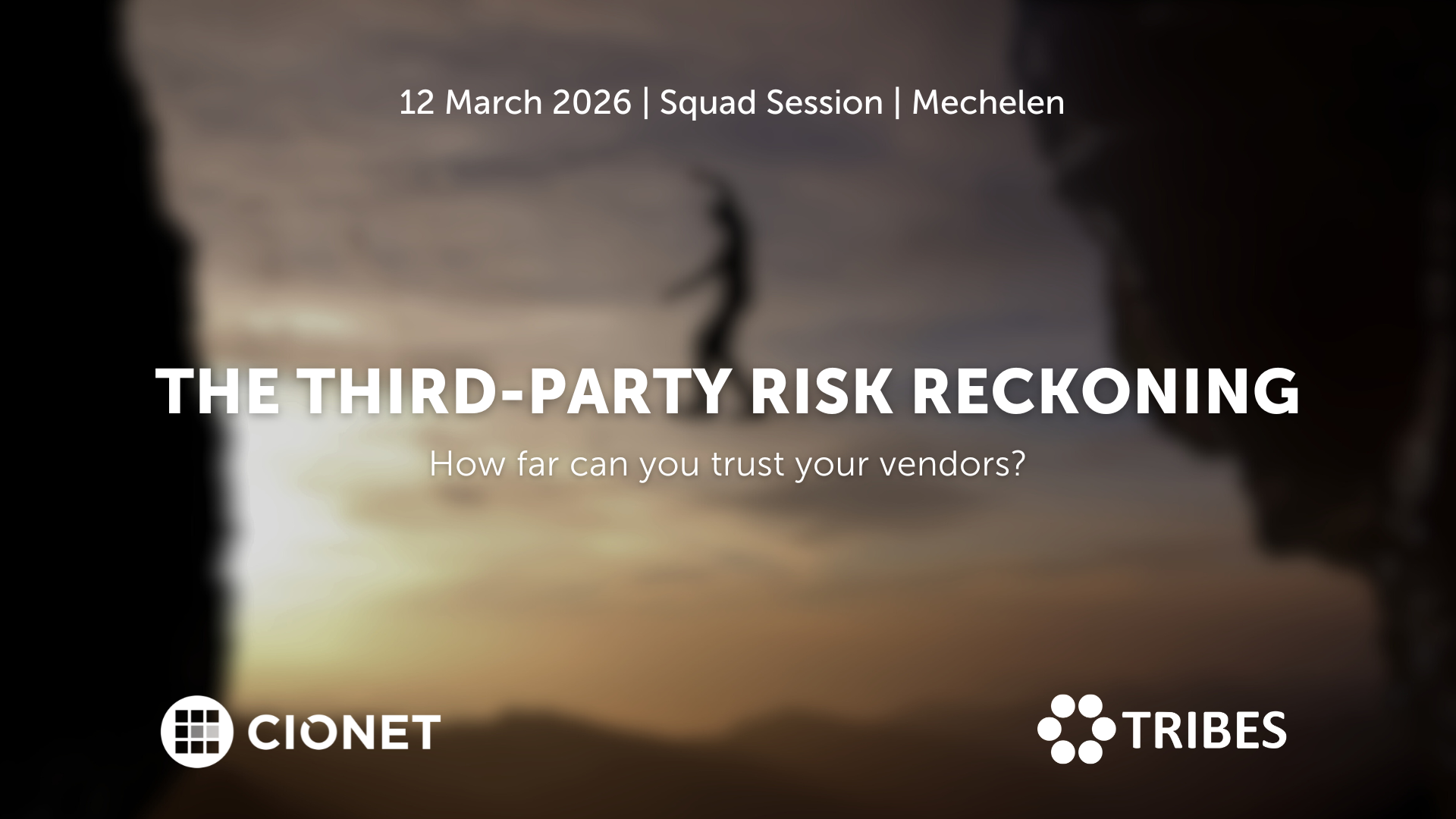
March 12, 2026 Squad Session Invitation Only Physical english
Tomato! Tomato! Tomato! Get your tomato now! Every vendor sells security. And every company depends on vendors, partners, and suppliers. The more digital the business becomes, the longer that list grows, and so does the attack surface. One weak link, and there is always one, or one missed update, and trust collapses faster than any firewall can react.
Read More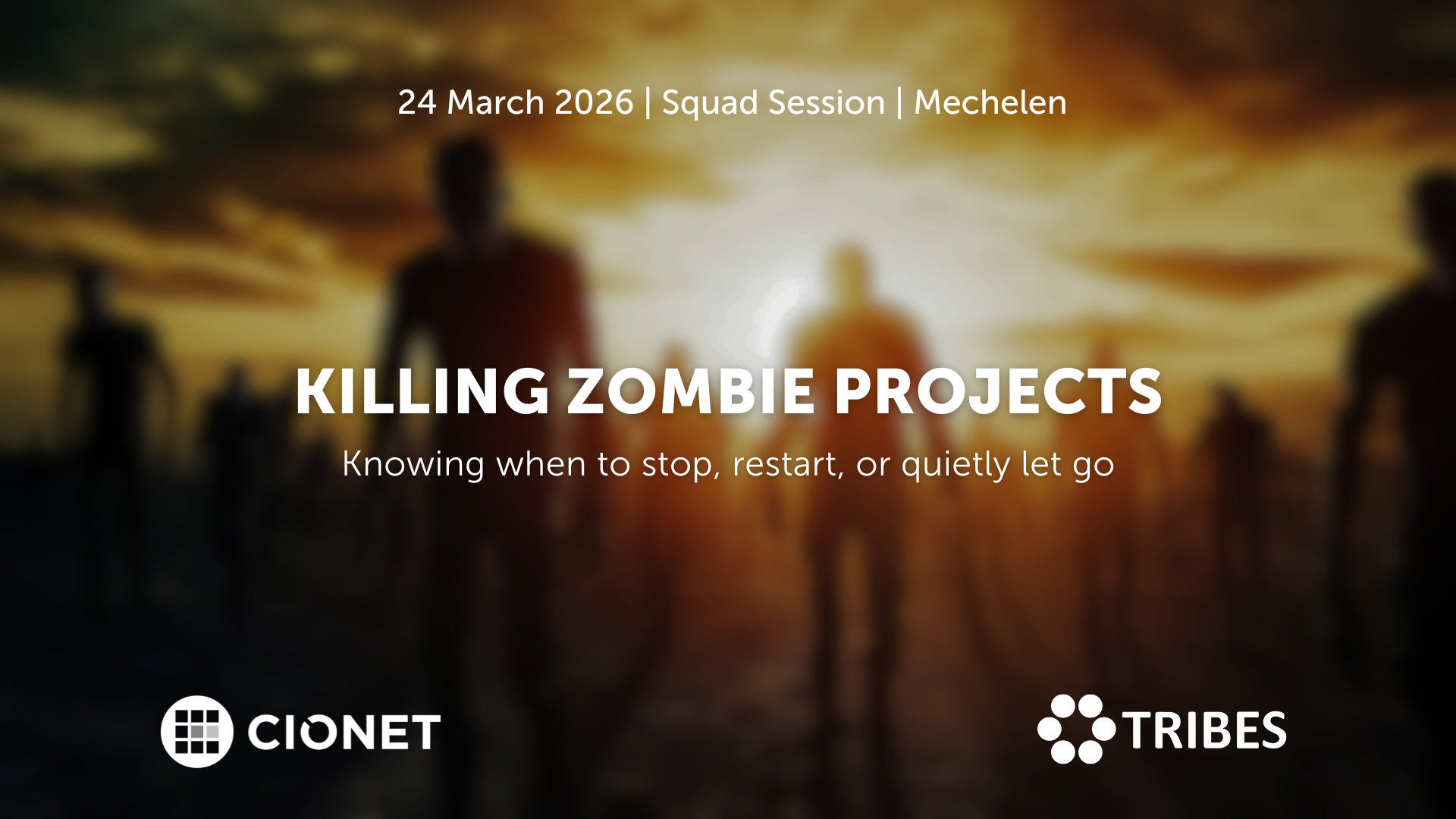
March 24, 2026 Squad Session Invitation Only Physical english
Every organisation has them, projects that keep running long after their purpose has faded. No one remembers who asked for them, but shutting them down feels riskier than keeping them alive. And eventually, people stay assigned, budgets stay allocated, and energy drains into work that no longer matters. Inertia at its finest.
Read More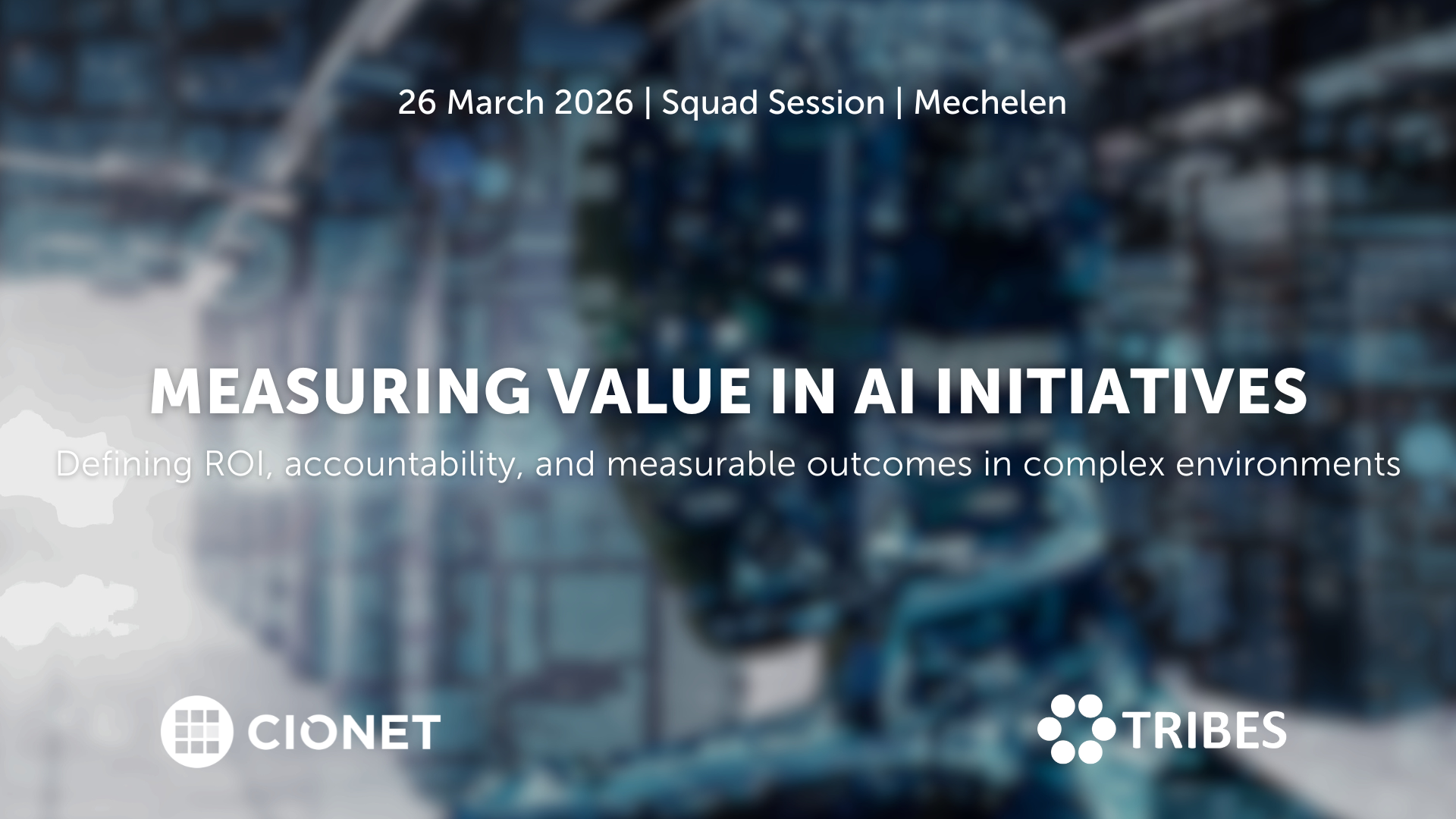
March 26, 2026 Squad Session Invitation Only Physical english
AI projects continue to multiply, but proving their value remains difficult. Most organisations can track activity, not impact. Dashboards count pilots and models, yet few translate to measurable business outcomes. The result is familiar: success stories without clarity on what they actually delivered.
Read More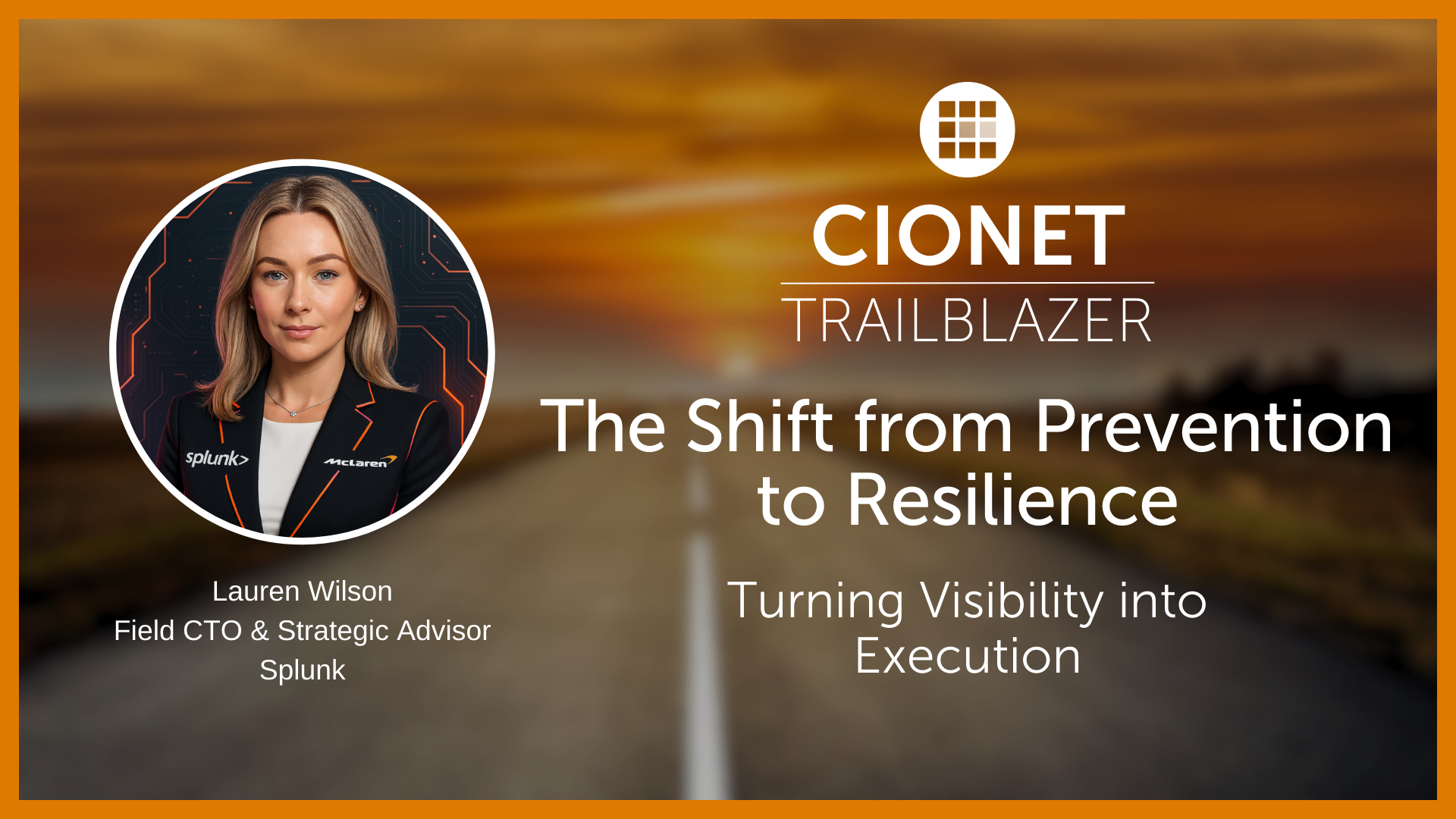
CIONET Trailblazer: CISO: The Shift from Prevention to Resilience: Turning Visibility into Execution
Published on: January 28, 2026 @ 9:48 AM

CIONET Trailblazer: AI Transformation: Bridging the Cultural Divide to Achieve Competitive Advantage
Published on: December 17, 2025 @ 9:16 AM
Expanding access to the economy
Block is a global technology company that champions accessible financial services, prioritizing economic empowerment. Its subsidiaries, including Square, Cash App, Spiral, TBD and TIDAL, are committed to expanding economic access. By utilizing machine learning (ML) and artificial intelligence (AI), Block proactively identifies and prevents fraud, ensuring secure customer transactions. Moreover, Block enhances user experiences by delivering personalized recommendations, utilizing identity resolution to gain a comprehensive understanding of customer activities across their diverse services. Internally, Block optimizes operations through automation and predictive analytics, driving efficiency in financial service delivery. To bolster their capabilities, Block leverages the Databricks Data Intelligence Platform, consolidating and streamlining their data, AI and analytics workloads. This strategic move positions Block for the forthcoming automation-driven innovation shift and solidifies its position as a pioneer in AI-driven financial services, facilitating inclusive access to financial opportunities for economic growth.
In pursuit of their data strategy to enhance time to market, Block embarked on an active migration of their data processing to the cloud. A significant obstacle they faced was the efficient management of a large volume of data crucial for graph-related use cases. This encompassed handling graph databases, leveraging various machine learning tools and optimizing performance for petabytes of data. Additionally, operational inefficiencies and scalability concerns arose from the fragmented nature of data across diverse business units. Cumbersome data transfers between these systems combined with the siloed nature of data governance policies further complicated matters, posing auditing and policy enforcement challenges.
To address these challenges and accelerate graph analysis, especially in Online Analytical Processing (OLAP) mode, Block chose to migrate to Spark and selected Databricks as their lakehouse. This decision allowed them to consolidate all data and AI workloads onto a unified platform, empowering data scientists, data engineers and AI practitioners to leverage data efficiently from a centralized location.
As Joseph Kesting, Software Engineer at Block, explained, “The adoption of Databricks as a centralized platform for storing and sharing data across business units has empowered Block to establish a thriving data marketplace. This unique setup enables individual business units to exert their own controls while benefiting from the conglomerate’s resources, granting them access to diverse data sets from different units.”
Currently, Block manages 12PB of data on the Databricks Data Intelligence Platform and anticipates reaching 16PB by year-end. Approximately 70 different teams across business units, such as TIDAL, Cash App, Square and TBD, and 500 active power users actively utilize the platform.
One of Block’s critical requirements was the proper implementation and uniformity of data governance policies, ensuring compliance with privacy laws like GDPR and CCPA for both customers and internal teams. The objective was to enable secure and compliant access to personally identifiable information (PII) data. To address these challenges, Block adopted Unity Catalog for centralized governance.
According to Kesting, “Introduction to Databricks coincided with the launch of Unity Catalog, eliminating the need for evaluating alternative data governance tools. The seamless integration with Databricks was the primary factor driving our choice of Unity Catalog.”
With Unity Catalog, Block achieved a unified view of their data estate across different business units, simplifying access permission management. It also offered the flexibility to distribute cost attribution among teams by allowing the assignment of storage locations per team for their catalogs and schemas. This approach enabled different business units to maintain their distributed data governance policies while ensuring a streamlined process.
“Unity Catalog played a pivotal role in facilitating secure and controlled access to sensitive PII data for diverse business units. It allowed data access restriction through dedicated workspaces, ensuring compliance with the original terms of service for data collection. This compliance was enforced not only for the business units that collected the data but also for other units accessing it,” says Kesting. Block plans to enhance this capability by implementing a clean room solution using Delta Sharing in Unity Catalog, enabling secure and privacy-safe collaboration across business units and the partner ecosystem.
Block also intends to leverage data lineage to comply with right-to-forget scenarios. This involves tracing the usage of PII data throughout the entire Block ecosystem, ensuring adherence to data privacy regulations.
Migrating graph use cases to Databricks proved to be a game changer for Block, delivering substantial improvements in compute performance and cost optimization. By leveraging Databricks, Block managed to reduce compute costs by an impressive 12x while unlocking previously unattainable use cases due to scaling limitations. According to Kesting, “the elimination of these constraints with Databricks has opened up new possibilities for innovation and analysis.”
The implementation of Unity Catalog within Block’s data ecosystem brought about transformative benefits. It facilitated the creation of a dynamic “marketplace” for data exchange between different business units, fostering collaboration and knowledge sharing. This played a crucial role in reducing data egress costs associated with cross-cloud provider data transfer by 20%.
Unity Catalog also improves the ease of IAM policy management for Block. Previously, they had to navigate a complex two-step approval process, involving attaching IAM policies to roles and then to S3 buckets. This often led to bucket policy limitations and required permissions to be refactored. However, with Unity Catalog, they streamlined this process by configuring sub-group level access permissions in a single location. The operational efficiency of data sharing improved significantly, reducing the time required from days to seconds. Additionally, the adoption of Unity Catalog promoted the collection of data into S3 buckets, resulting in improved latency and the co-location of compute and storage.
Moreover, Unity Catalog empowered Block to attribute data ownership more easily and decentralize decision-making. Data sets could be associated with their respective owners, enabling them to determine how the data is shared. This shift from a centralized team imposing data governance to actual data owners making decisions improved compliance and audit reporting, enhancing overall data governance and accountability.
Looking ahead, there is a big focus on leveraging generative AI and LLMs in Block’s overall data and AI strategy, and Unity Catalog will play an important role in delivering on that strategy with the ability to govern ML models along with the data from single location will accelerate AI and analytics initiatives.
667 Views 0 Likes Read More
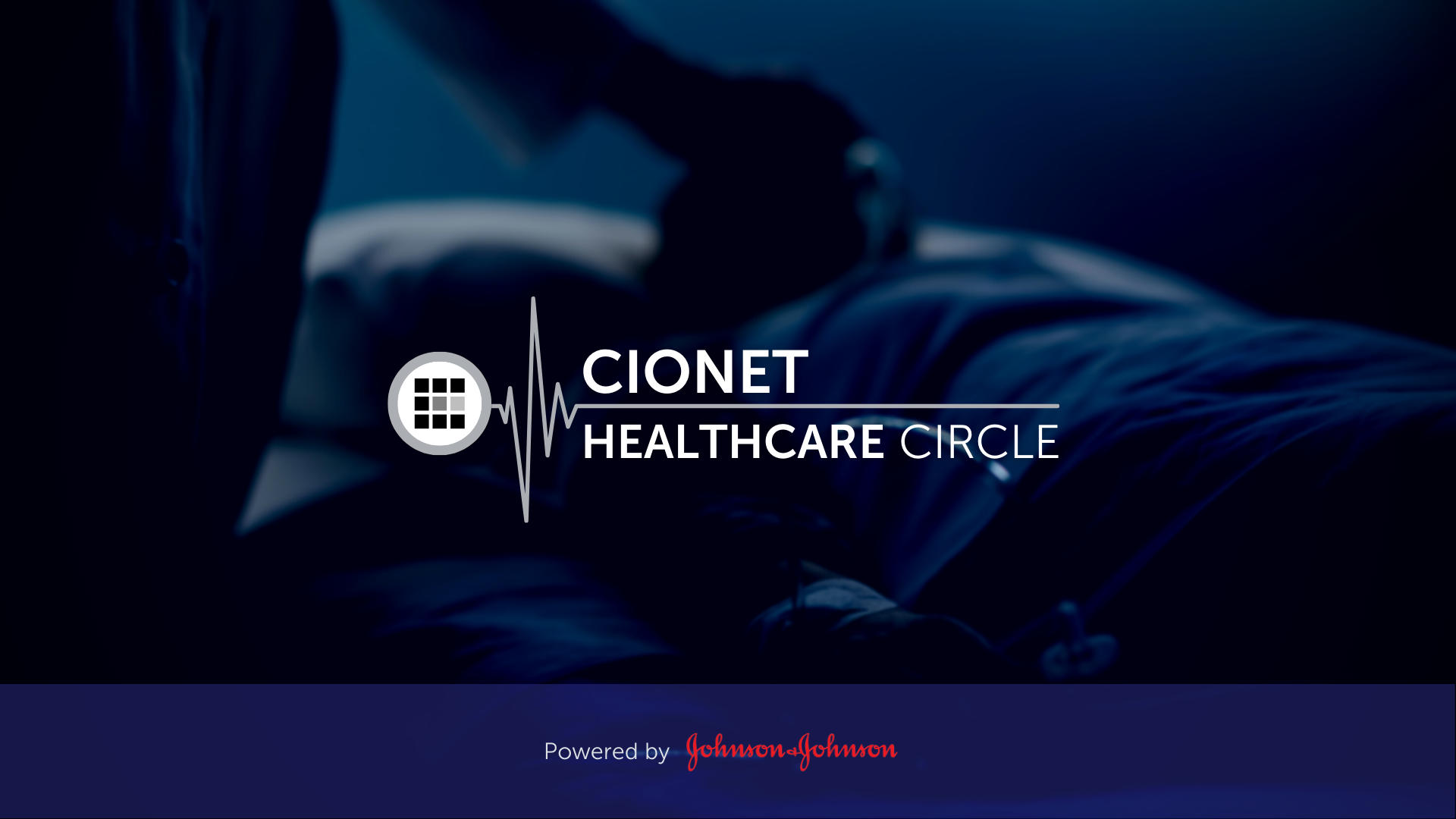
Digital Transformation is redefining the future of health care and health delivery. All stakeholders are convinced that these innovations will create value for patients, healthcare practitioners, hospitals, and governments along the patient pathway. The benefits are starting from prevention and awareness to diagnosis, treatment, short- and long-term follow-up, and ultimately survival. But how do you make sure that your working towards an architecturally sound, secure and interoperable health IT ecosystem for your hospital and avoid implementing a hodgepodge of spot solutions? How does your IT department work together with the other stakeholders, such as the doctors and other healthcare practitioners, Life Sciences companies, Tech companies, regulators and your internal governance and administrative bodies?
Read More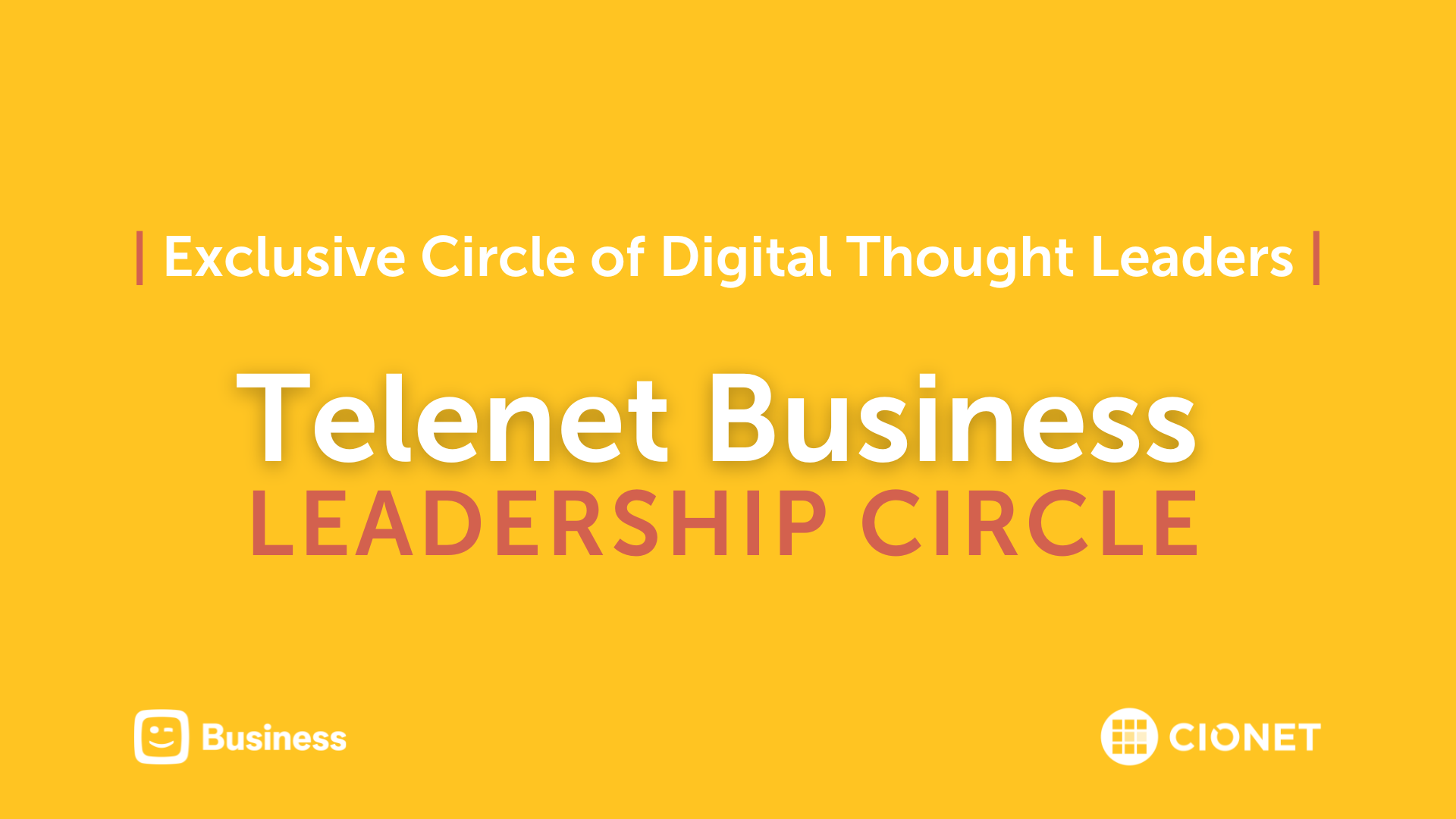
The Telenet Business Leadership Circle powered by CIONET, offers a platform where IT executives and thought leaders can meet to inspire each other and share best practices. We want to be a facilitator who helps you optimise the performance of your IT function and your business by embracing the endless opportunities that digital change brings.
Read More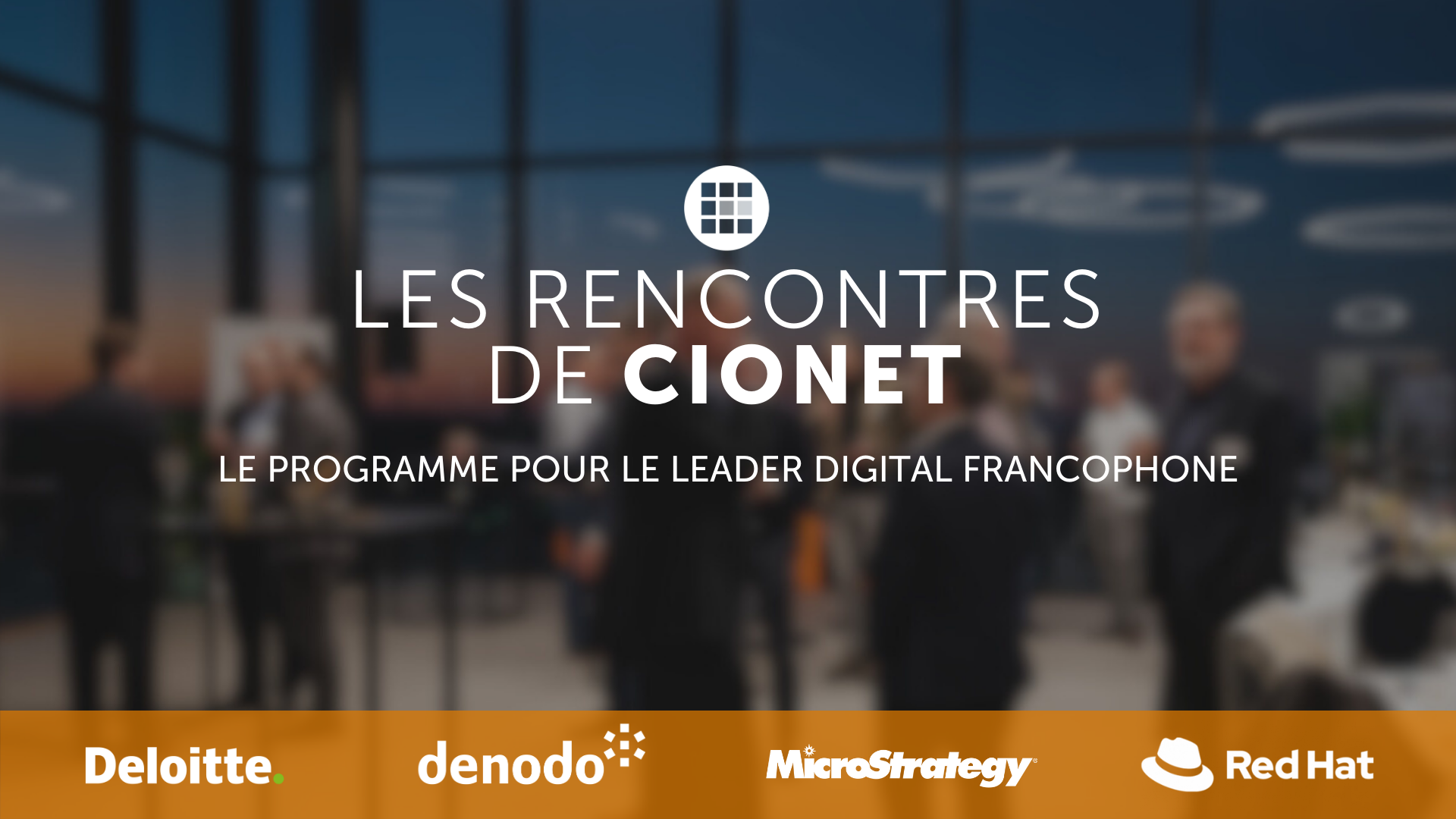
Découvrez la dynamique du leadership numérique aux Rencontres de CIONET, le programme francophone exclusif de CIONET pour les leaders numériques en Belgique, rendu possible grâce au soutien et à l'engagement de nos partenaires de programme : Deloitte, Denodo et Red Hat. Rejoignez trois événements inspirants par an à Liège, Namur et en Brabant Wallon, où des CIOs et des experts numériques francophones de premier plan partagent leurs perspectives et expériences sur des thèmes d'affaires et de IT actuels. Laissez-vous inspirer et apprenez des meilleurs du secteur lors de sessions captivantes conçues spécialement pour soutenir et enrichir votre rôle en tant que CIO pair. Ne manquez pas cette opportunité de faire partie d'un réseau exceptionnel d'innovateurs numériques !
Read More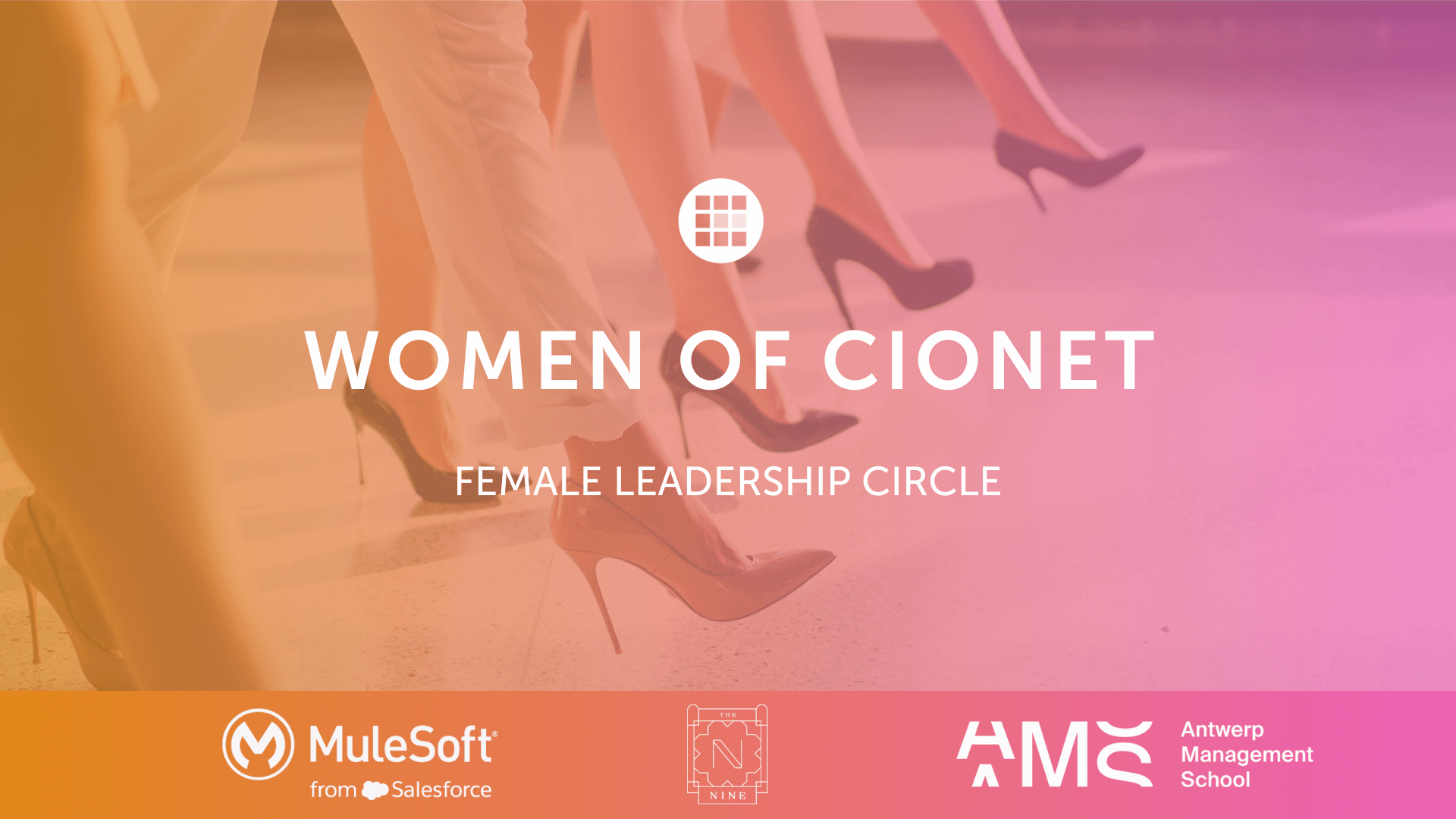
CIONET is committed to highlighting and celebrating female role models in IT, Tech & Digital, creating a leadership programme that empowers and elevates women within the tech industry. This initiative is dedicated to showcasing the achievements and successes of leading women, fostering an environment where female role models are recognised, and their contributions can ignite progress and inspire the next generation of women in IT. Our mission is to shine the spotlight a little brighter on female role models in IT, Tech & Digital, and to empower each other through this inner network community.
Read More


-Apr-01-2022-10-58-34-57-AM.png)









-Dec-13-2023-10-53-15-5032-AM.png)



-Jun-12-2023-01-23-11-7540-PM.png)




-Apr-01-2022-10-58-34-68-AM.png)








.png)









-Sep-01-2022-02-47-55-60-PM.png)
-Nov-22-2023-08-56-42-6802-AM.png)
.png)

Would you like to know more about CIONET Belgium, membership or partnership opportunities? Do you have feedback or any other question? Send us a message!
You can either send us a registered handwritten letter explaining why you'd like to become a member or you can simply talk to us right here!